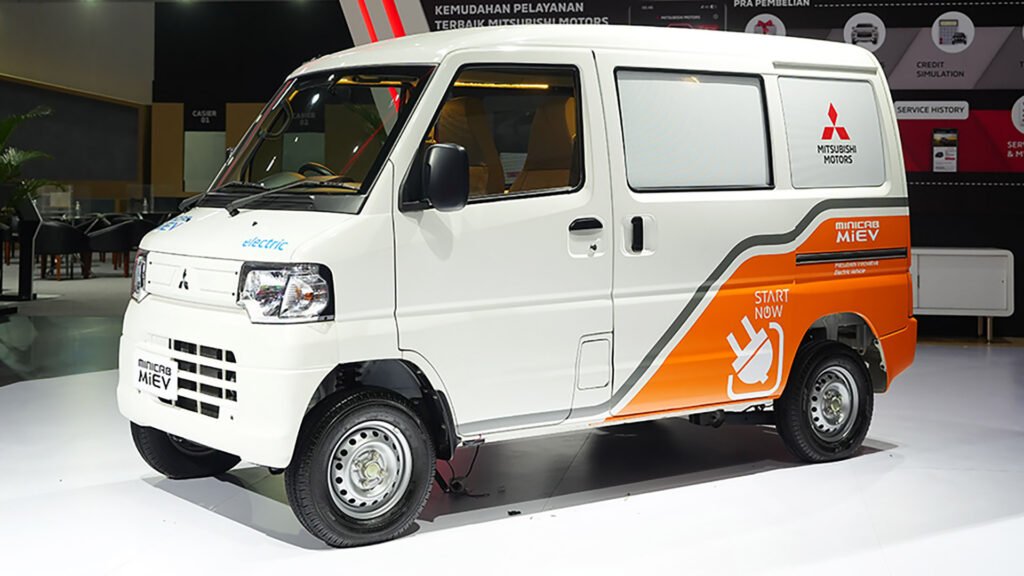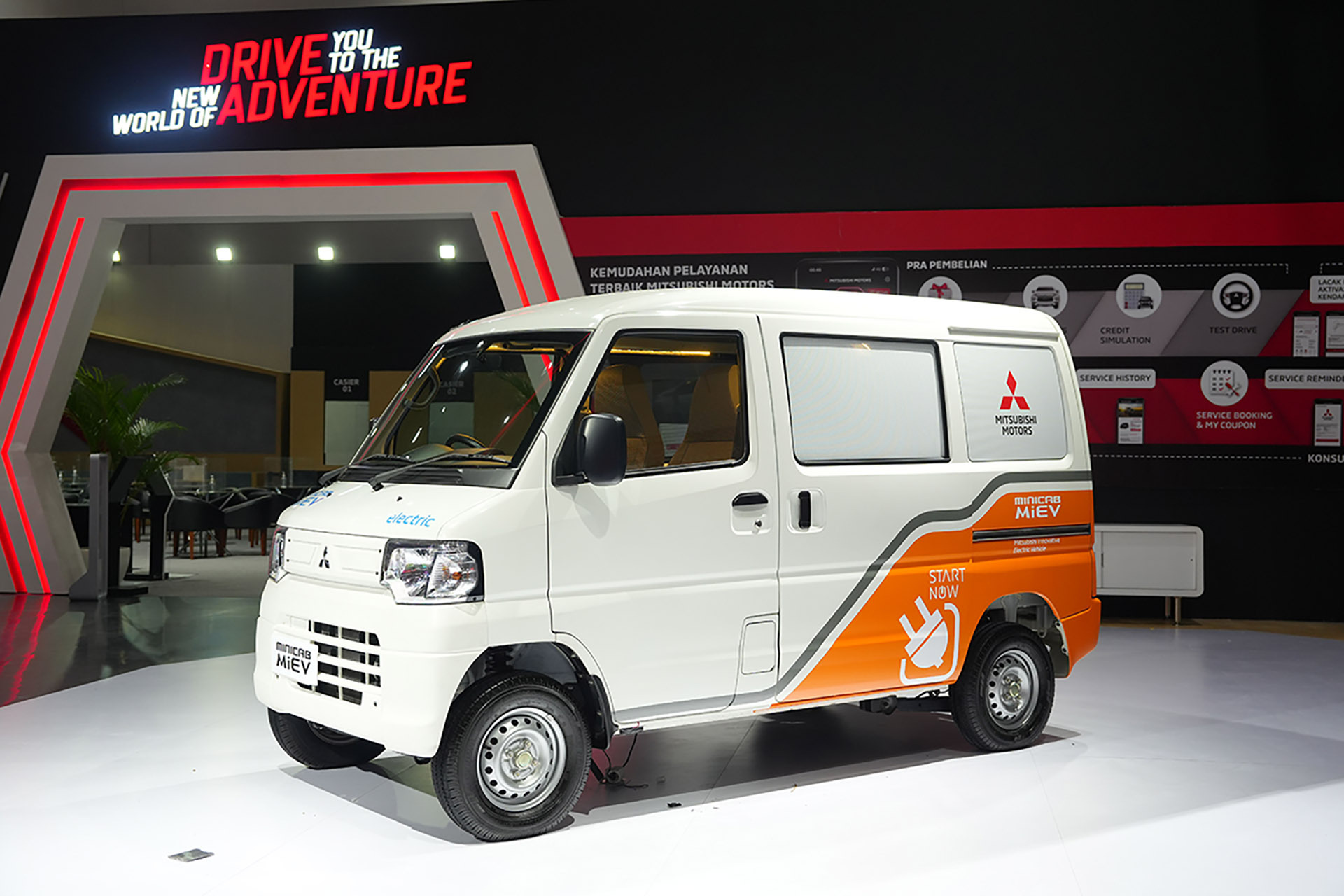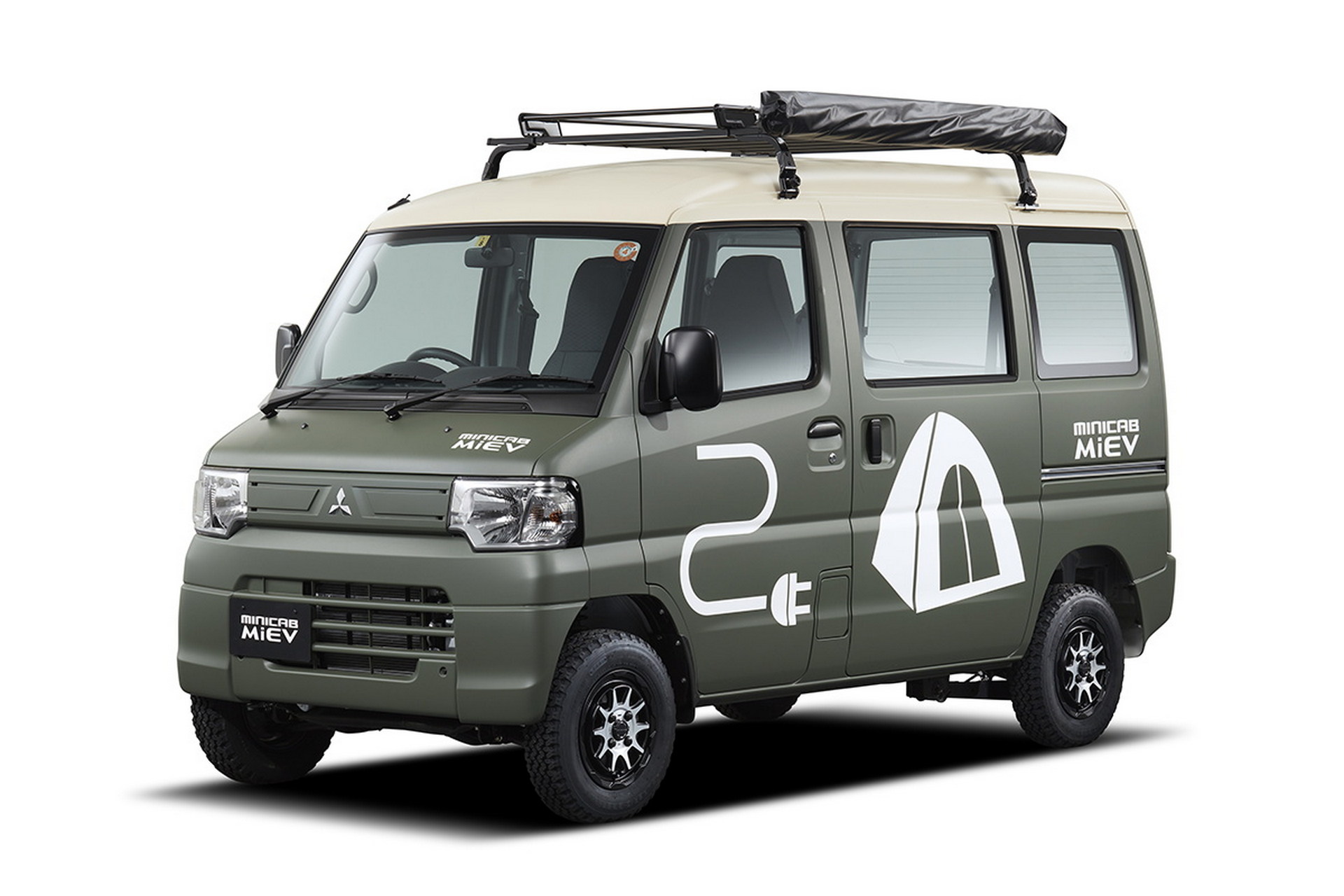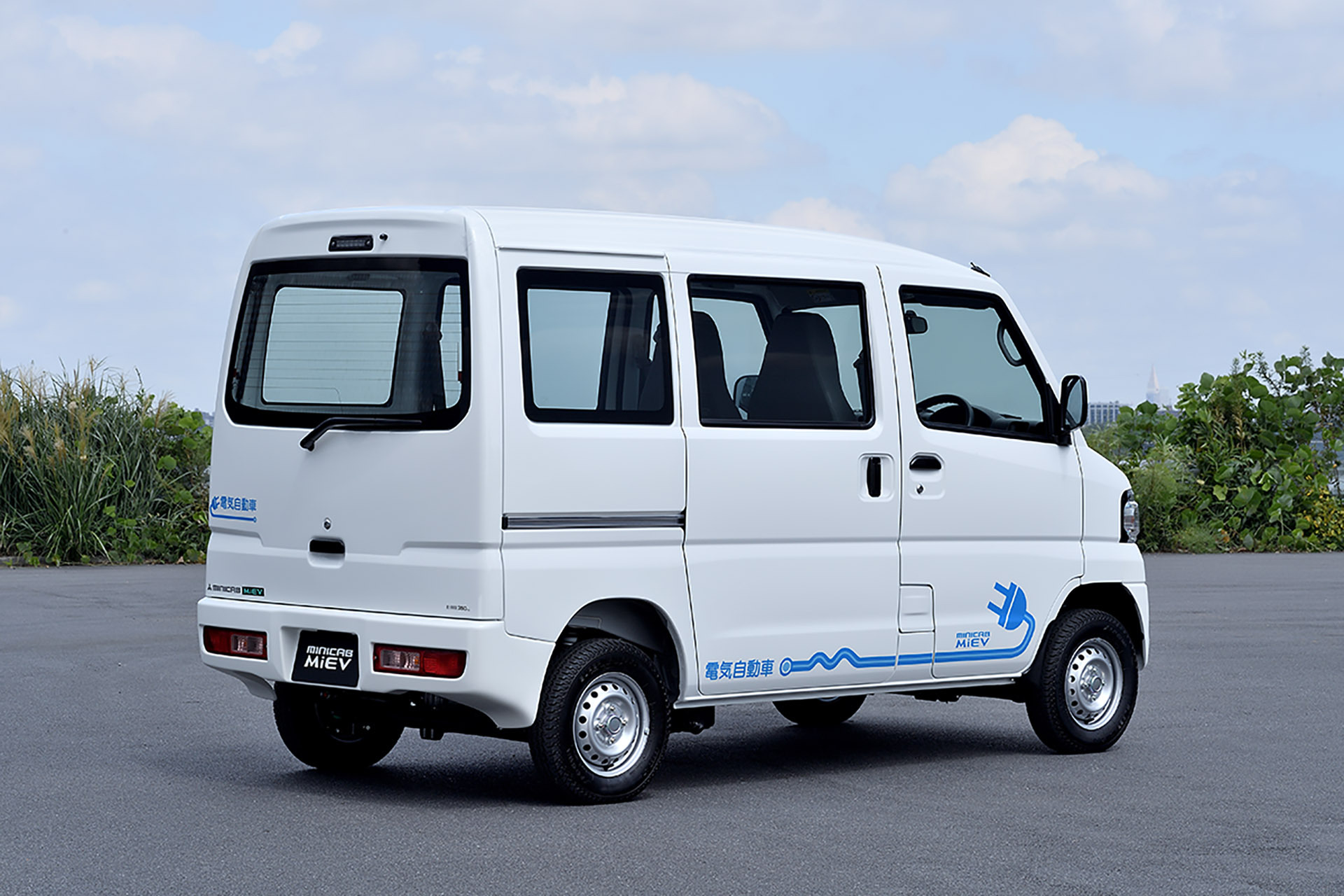The Mitsubishi Minicab MiEV has been around since 2011 as the first adopter of EV tech in the kei car segment. Twelve years later and after a brief period of discontinuation, Mitsubishi decided to relaunch the tiny LCV without any changes other than the production location which moves outside Japan for the first time.
The Mitsubishi Minicab MiEV was exhibited at the Indonesia International Motor Show this year for a good reason. Starting in 2024, production of the model will begin at the Mitsubishi Motors Krama Yudha factory in Indonesia, in a quest to satisfy the increased demand for electric kei cars in Japan. The Indonesian plant with a workforce of 3,300 people and a production capacity of 220,000 vehicles per year, is also where Mitsubishi produces the Pajero Sport, the Xpander, and the Xpander Cross.
Read: New Mitsubishi Delica Mini Is A Rugged Kei Car That Looks Both Cute And Adventurous
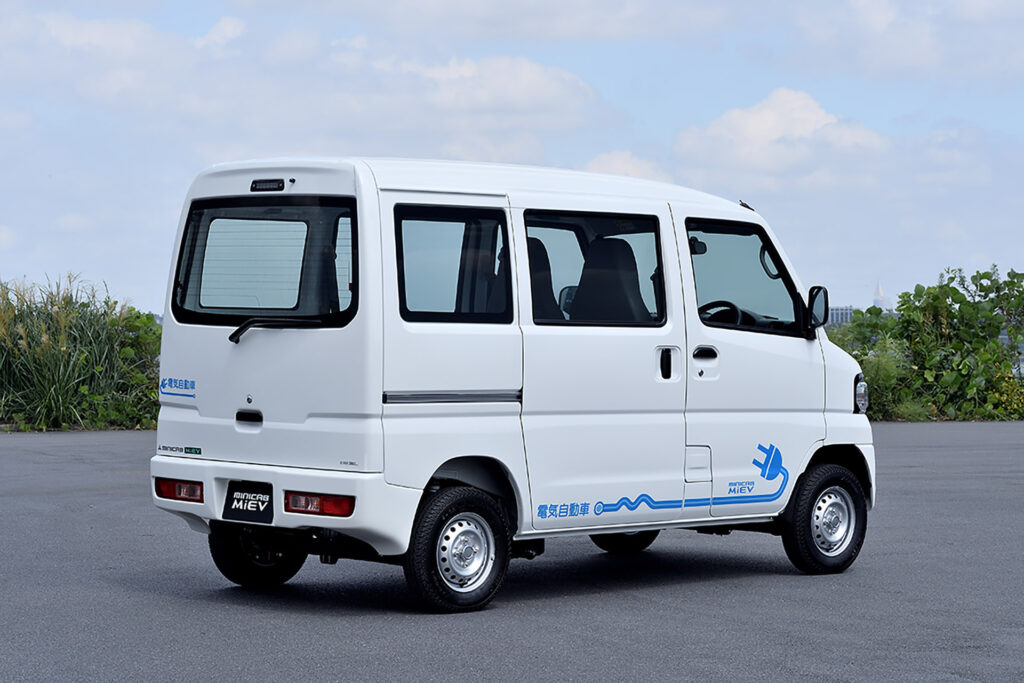
Mitsubishi discontinued the Minicab MiEV in March 2021 retaining its availability only for corporate customers, but sales resumed in November 2022 due to the “growing demand” for electric LCVs coming from “logistics companies and local governments that are engaged in sustainable business activities”. The electric LCV is currently priced at ¥2,431,000 yen ($18,093) for the two-seater and ¥2,453,000 ($18,246) for the four-seater version.
Despite its age, the reborn Minicab MiEV hasn’t changed at all, retaining its utilitarian styling and compact zero-emission powertrain. The latter is sourced from the Mitsubishi i-MiEV (2009-2021) – also rebadged as the Peugeot iOn and Citroën C-Zero – which was the first highway-capable mass-produced EV. In the Minicab MiEV, the single electric motor produces 40 hp (30 kW) and 196 Nm (145 lb-ft) of torque, while the 16 kWh battery offers a driving range of 133 km (83 miles). Mitsubishi brags about the placement of the battery pack under the center of the floor, which doesn’t sacrifice cargo capacity over the ICE-powered Minicab and lowers the center of gravity.
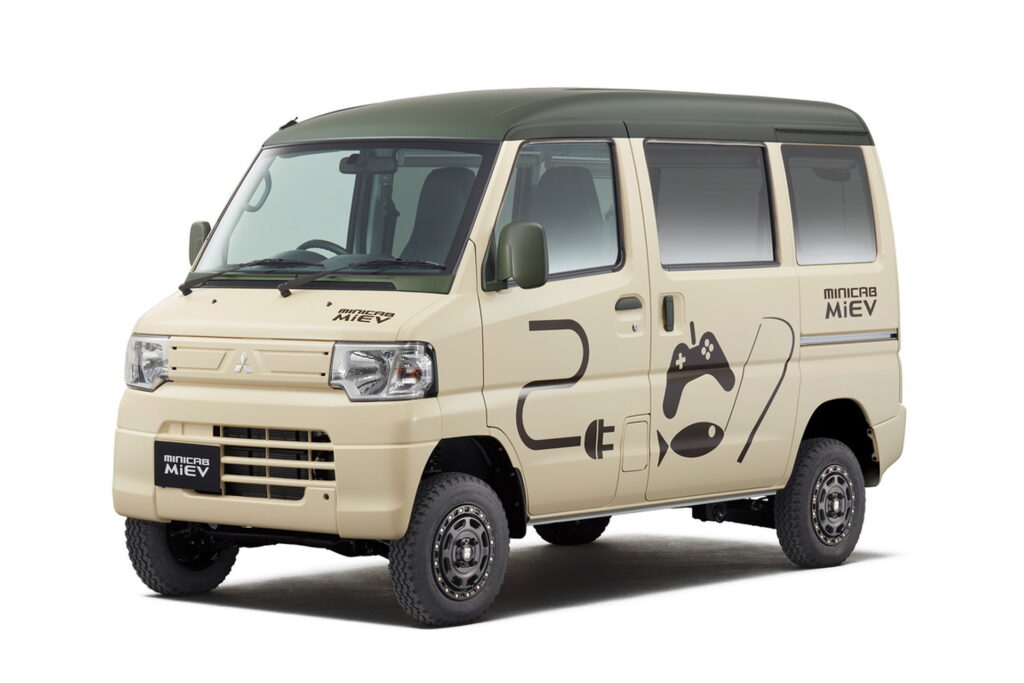
The company highlighted the tuning potential of the LCV with two “Leisure Style” concept cars that debuted at the Tokyo Auto Salon in 2022 and in 2023. Both came with a military-style bi-tone livery, off-road wheels, and plenty of accessories for camping and fishing, transforming their boxy interior into a mobile workplace or a sleeping area.
Among the rivals of the Mitsubishi Minican-MiEV is the electric version of the Honda N-Van set to debut in 2024, and a similarly-sized EV from Suzuki that is expected at around the same time. Electrification was initially considered a threat to affordable and small-sized vehicles, due to the high cost of hybridization. Thankfully we went past that stage, with more and more automakers presenting fully electric kei cars and keeping this adorable segment alive.




